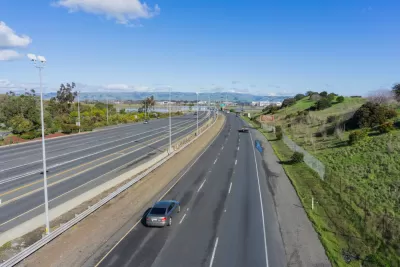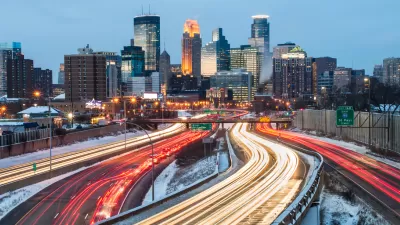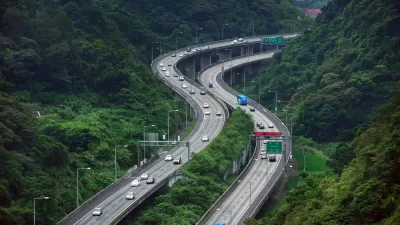Some people just can't help but help themselves to the fast lane.

"Oklahoma, Oregon and Virginia are racing to become the latest in a wave of states that have imposed higher fines and more restrictions on driving in the left lane of multilane highways," reports Martha T. Moore.
The three states would join Florida, Georgia, Indiana, New Jersey, and Tennessee among states that have "stiffened" penalties for lingering in the left lane since 2013. "While all states require slow vehicles to keep right, they do not all specifically require drivers to get out of the left lane after overtaking another motorist or set penalties for failing to do so," explains Moore.
The article also examines the connection between the new laws and the growing traffic fatalities around the country. Oregon Senate Majority Leader Ginny Burdick is cited saying that stricter left lane laws are need due to growing traffic fatalities. To counter that point, Moore quotes Andrea Bill, traffic safety engineer research program manager at the University of Wisconsin Traffic Operations and Safety Laboratory, and Charles Farmer, vice president of research and statistical services at the Insurance Institute for Highway Safety, both of whom say there are higher priorities for improving traffic safety. Planetizen covered a 2014 article that reached a similar conclusion.
Moore also provides details of each of the state's proposed penalties for clogging the left lane.
FULL STORY: Growing number of states fine slowpoke drivers in highway fast lanes

Alabama: Trump Terminates Settlements for Black Communities Harmed By Raw Sewage
Trump deemed the landmark civil rights agreement “illegal DEI and environmental justice policy.”

Study: Maui’s Plan to Convert Vacation Rentals to Long-Term Housing Could Cause Nearly $1 Billion Economic Loss
The plan would reduce visitor accommodation by 25% resulting in 1,900 jobs lost.

Why Should We Subsidize Public Transportation?
Many public transit agencies face financial stress due to rising costs, declining fare revenue, and declining subsidies. Transit advocates must provide a strong business case for increasing public transit funding.

Wind Energy on the Rise Despite Federal Policy Reversal
The Trump administration is revoking federal support for renewable energy, but demand for new projects continues unabated.

Passengers Flock to Caltrain After Electrification
The new electric trains are running faster and more reliably, leading to strong ridership growth on the Bay Area rail system.

Texas Churches Rally Behind ‘Yes in God’s Back Yard’ Legislation
Religious leaders want the state to reduce zoning regulations to streamline leasing church-owned land to housing developers.
Urban Design for Planners 1: Software Tools
This six-course series explores essential urban design concepts using open source software and equips planners with the tools they need to participate fully in the urban design process.
Planning for Universal Design
Learn the tools for implementing Universal Design in planning regulations.
Caltrans
Smith Gee Studio
Institute for Housing and Urban Development Studies (IHS)
City of Grandview
Harvard GSD Executive Education
Toledo-Lucas County Plan Commissions
Salt Lake City
NYU Wagner Graduate School of Public Service




























